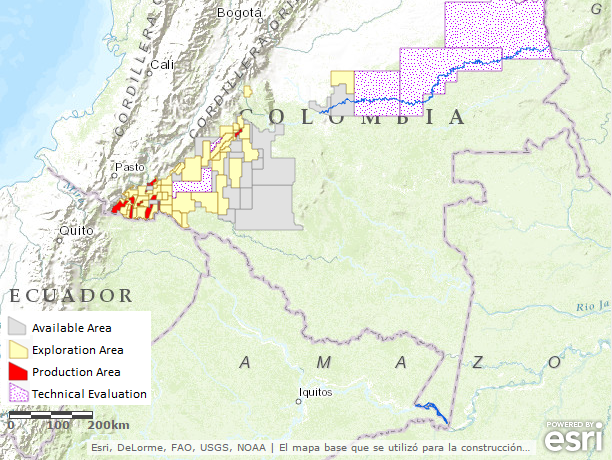
The government’s fiscal plans are being squeezed by the downward trend of the WTI and Brent oil prices. Estimates are that for every dollar the price drops, the fiscal impact in revenues amounts to CoP$420B (US$220.8M) over the year.
Colombia’s main gas transporter TGI has moved Riaño Alarcón into the role of president, drawing on his experience with the firm as regulation manager as the firm looks to adapt to a new regulatory framework for gas.
The General Royalty System (SGR) continues to generate conflict between the central government and regional leaders. Departmental governors from the major oil producing regions say a budget crisis is looming due to the new royalty system as congress mulls changes.
A boom in the local population and migratory patterns that has led to increased unemployment, crime rates and now budget problems due to the lack of direct royalties. The Aguazul mayor Fernando Camacho argues that the nearly 15 years of oil activity has left the community worse off.
The Ministry of Mines and Energy (MinMinas) has signed a cooperation agreement with its counterpart in Peru to promote an exchange of information and hold a yearly meeting to discuss hydrocarbons development.

The National Hydrocarbons Agency is making slow advances towards the Amazon basin, which has the potential to greatly increase the country’s proven reserves, but could also ignite conflicts over environmental issues.